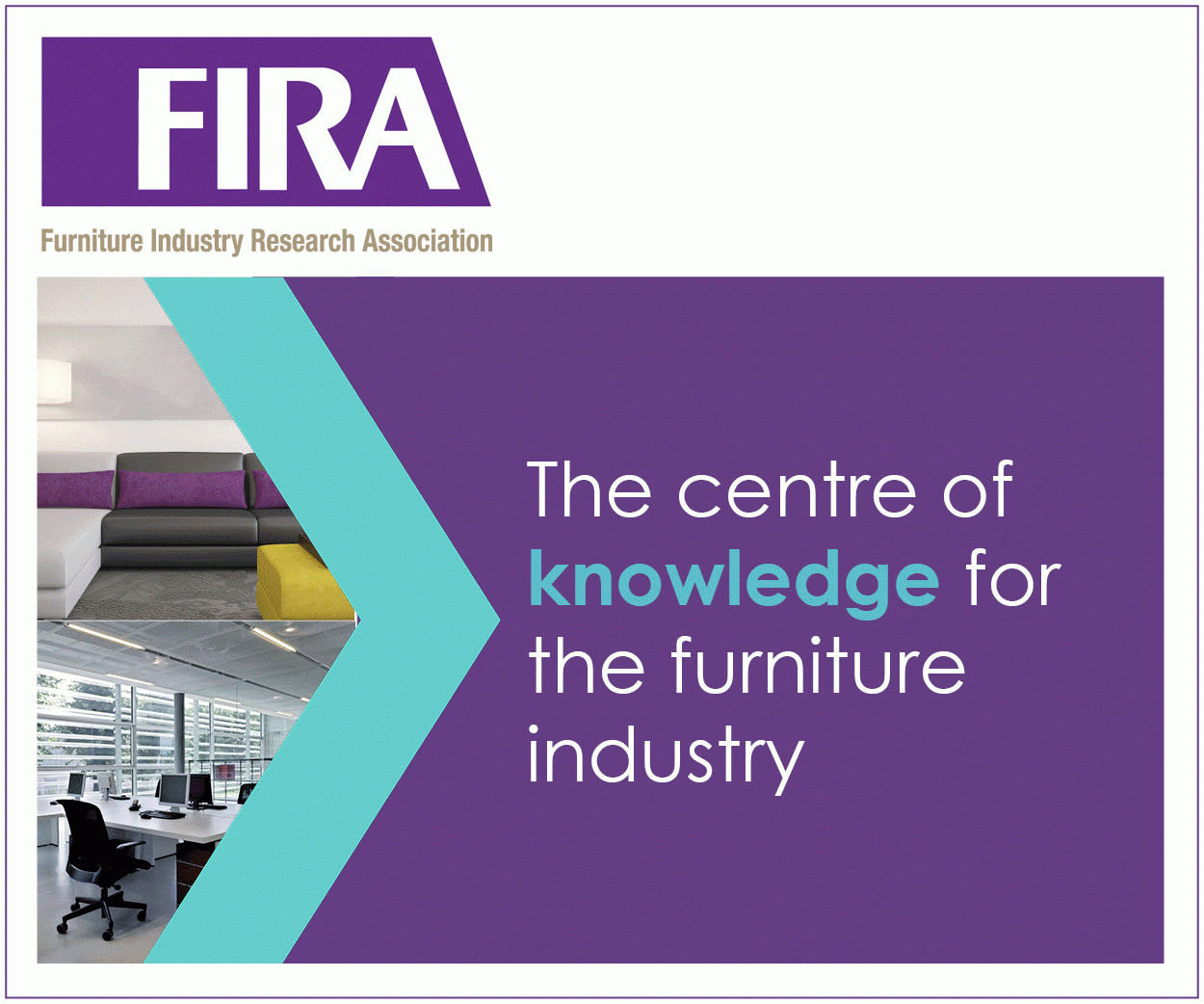Do great minds really think alike? History teaches us that it’s usually those who go their own way that leave the biggest mark. In an exclusive interview, Paul Farley talks to Jason Tyldesley, the retail pioneer behind Sofology, to discover how he brought a truly unique business model to the UK upholstery market …
When Mary Portas went undercover in the world of sofa superstores back in January 2011, she could barely contain her disdain for the sector, describing it as “one of the worst retail industries” she’d worked in, full of misleading sales promises and well-rehearsed spiel from shop assistants that would “say anything to get their commission”.
The future Queen of Shops even accused one adviser of encouraging her to commit insurance fraud (a portrayal which media regulator Ofcom later ruled as unfair).
Only one business came out on top – the Lancashire-headquartered CSL Sofas, which granted Mary access to its inner workings, and proposed a customer-centric, single-price business model which flew in the face of accepted practices.
“A lot of people told me it couldn’t be done, and that the market required tactical discounting and promotion,” says Jason Tyldesley, who was appointed CSL’s MD at the tender age of 24, and, in 2013, rebranded it Sofaworks to reflect its move away from sales to ‘everyday low prices’.
Due to a registration oversight, DFS-owned retailer Sofa Workshop quickly issued a challenge against Sofaworks, claiming that the brand name infringed its own. In a two-day hearing in 2015, the ruling went against Jason.
“This judgement makes no sense to us,” complained Jason at the time. “How could Sofaworks ever benefit from pretending to be a smaller retailer? Why would a salmon pretend to be a stickleback in order to swim up the river?”
Growth and acquisition
One costly rebrand later, and Sofology emerged. “Finding the right descriptor for what we do was one of the pivotal moments in driving our business forward,” says Jason, who contends that the new moniker is a perfect reflection of the brand’s ethos. “It resonated with customers faster, harder and better – and we’ve only grown since.”
Rising turnover and sizeable investments helped offset the costs associated with establishing the retailer’s new identity, and its store estate grew.
Then, in August last year, the company took another turn, when DFS – which had previously challenged the brand’s name – announced it was purchasing Sofology for £25m, plus a multiple of its underlying EBITDA (to a maximum of £105m). The deal between the two sofa retailers was greenlit by the Competition and Markets Authority, and the company became part of the upholstery giant at the end of November.
In the weeks and months surrounding the acquisition, speculation was rife. Why would DFS choose to buy a competitor whose store locations and product appeared to mirror its own? And what was the meaning behind the leaked promotional materials for a new bedding brand, Sleepology?
Jason may be concerned with customer-facing transparency, but he’s tight-lipped when it comes to corporate dealings.
“We might complement each other in the market, but we are certainly not related to DFS in terms of offer or product,” says Jason. “There are certainly no structural changes planned. It just makes total strategic sense for us to carry on what we are doing – but it also makes great sense for Sofology to be part of a bigger group.”
And the bed brand rumours? “There is a trial, and we own a brand name – but we are not a bed retailer, and we’re not going into the bed market,” states Jason.
Points of difference
Amid such speculation, it’s easy to overlook the most compelling reasons for the acquisition. Sofology is undeniably one of retail’s hottest prospects right now – mainly because it’s built on differentiation.
While Mary Portas was lambasting the sector for putting commission before the customer, Jason was striving to do the opposite. As part of the company’s mission to offer the best possible customer experience, it scrapped commission and tactical pricing, while implementing some of the most cutting-edge technologies in UK retail.
“We’ve had to pull the whole idea apart and make some very difficult decisions,” Jason explains. “None of these building blocks have been easy to establish, and some of them are counter-intuitive. It can be really hard to marry the notions of commercial gain and helping customers get the right result.”
Surveys conducted by Sofology revealed that an astounding 43% of us feel we have bought the wrong sofa, and would have bought a different model had we been better informed. It’s an alarming statistic, and one that tallies with Mary Portas’ take on a sector striving to make a sale, whatever the cost.
“What’s more important – finding a sofa that you’re going to love for the next 10 years,” asks Jason, “or picking up whatever’s on discount today? By leading with promotions, the market distorts the customer’s perception, and they end up believing that the criteria for buying a sofa is discount or deadline. It’s no wonder more than two in five of them end up feeling buyer’s remorse.”
Out went promotions and commission-hungry sales staff, and in came a highly-formatted model built around customer experience. In-store ‘Sofologists’ take each customer through what Jason calls the ‘magic six’ test – which covers style, colour, comfort, room plan, maintenance and durability – to establish who they are, and when, where and how they’re going to use the product.
“It’s fine to have a direct path to purchase if you’re buying a loaf of bread,” says Jason. “But you’re going to have to live with your sofa for seven-10 years. And there are so many points of difference – people come in many shapes and sizes, and have different requirements, ways they want to sit, families, kids, pets, rooms and homes.
“We offer a very sophisticated build, which takes care to create an experience that has a lot of informed and empowered choice built in from the very beginning, and takes the customer on a journey that they thank us for at the end.”

Sofology, North Shields – each roomset features a 36in touchscreen for ultimate order flexibility
And are all customers happy to be taken on that journey? “I once bought a really high-powered sports car,” Jason recounts. “I had two kids, and it didn’t have back seats – but I wanted the car. Was the purchase sensible? No. Did I still want it? Yes. We’re not here to be the fun police – but we want to make sure that if you buy something that may not match your environment, or the way you want to use it, you do so knowingly.”
His method clearly works, as customer satisfaction with Sofology is high, reflected in a five-star Trustpilot rating, “amazing” NPS scores, and a “significant” reduction in returns over the years.
“We look at everything we do from the customer’s perspective, and sometimes that means making the buying journey longer and less direct, and offering them better quality information so they can make a better decision,” says Jason.
“I’m focused on customer experience – format, and consistency. The journey needs to have a beginning, middle and an end, and to delight the customer along the way with useful added extras. Within the upholstery market I think it’s much more about empowering better decisions, so we work very hard to make sure our customers find the right product.”
Tech first
Jason likens the experience to visiting a traditional gents outfitters – the customer is asked where they’re going and what effect they want to achieve, and is then offered a suit that matches their needs. “Really, that’s what we do at Sofology,” he says, “but in a slightly more sophisticated, tech-heavy way!”
That’s a modest way of putting it. Sofology actually boasts one of the most advanced omnichannel platforms in UK retail, and the customer journey it offers is empowered by numerous innovative, award-winning technologies.
Jason’s background as a systems analyst and programmer has long helped keep the company ahead of the game. He personally built a tablet PC application that CSL employed as far back as 2005. Unsurprisingly, the retailer was the first in the sector to use iPads for taking orders in-store.
Says Jason: “We were designing for iPads before the iPad was even released!” My background has helped me conceive a vision in which we help customers at every touchpoint, through every channel.”
Sofology has built a huge technological infrastructure to support the delivery of its industry-leading digital experience. Its website and mobile application feed into the stores, which now incorporate 36in touchscreen stations at every room set, upon which customers can explore and specify their order from the retailer’s 270,000-plus SKUs.
They can build a basket in-store, on their mobile or online at home, and will enjoy a friction-free journey whichever combination of channels they opt for.
“It’s all about empowering customers to make great decisions, and removing the risks of failure in the sales process,” says Jason.
The latest development is a partner application that tracks customers’ journeys to within 10cm2, from the moment they enter the store. Each sofa the customer sits on is added to a ‘recently viewed’ selection, from which favourites can be highlighted. With or without the help of a Sofologist, they can build a basket in-store that can be completed at home afterwards, after they’ve checked that the colours and size fits their requirements.
“They’ve got ultimate flexibility in how they edit that basket and transact,” explains Jason. “They don’t need to come back to the store.”
Conversely, baskets built at home can be made visible to the in-store sales teams. “Two people can be sat at home and build a basket on their mobile, while a Sofologist enters their details, responds to their comments, and helps them better understand the products.”
A centralised view of data – customer and order – enables Sofology to deliver “some of the most sophisticated in-journey marketing known to man”, states Jason. And while leading retailers have begun to use Big Data for the delivery of personalised marketing, Sofology’s model offers the big-ticket item seller even greater opportunity.
“Identifying a customer and following up on their interest actually offers pretty low gain from furniture retail point of view,” Jason explains. “But if you take the fact that the average customer spends about three to four weeks in the purchase cycle for a sofa, the value of making that journey joined-up is huge.
“You only have to visit one retail park to see 300 to 400 sofas – how are you going to remember what you saw and where? With the help of our new partner platforms, we can communicate helpful content to stay front-of-mind throughout your journey, and be there when you need us.
“If we’re offering a low-pressure model, with no commission, deadline or tactical advertising, this capability makes a massive difference.”
Market reach
Such innovation would have little impact without an audience to fuel it, but Jason’s team has always worked hard to build a brand that customers can relate to. Consequently, Sofology punches well above its weight when it comes to marketing.
“From a percentage of turnover point of view, we are a minnow when it comes to marketing,” says Jason. “We spend less than half on media compared to our next-biggest competitor.”
The difference is that Sofology puts brand proposition before tactical discounting. “Rather than urge the customer to buy today instead of tomorrow, or during some sort of celebratory promotion, the marketing we’re doing is more about raising the value of the sofa in your life,” says Jason.
Many people’s first glimpse of the brand was through its sponsorship segments on Channel 4’s reality TV show, Gogglebox, in which families and friends react to the latest programming highlights from their living room sofas. “Gogglebox has played a beautiful – and efficient – part in putting our brand across on a national level,” says Jason, “and it’s got a great demographic. But in terms of bringing in new viewers it’s not as prolific as it once was.”
According to Jason, the show’s national reach is not necessarily in line with Sofology’s relatively light store distribution. “We have just hit 41 stores,” he explains, “and our coverage is fairly well spread – while all of our main competitors have anything from 50-150% more locations.”
Consequently, Sofology has retired Neal the sloth in recent months, replacing the long-serving brand mascot with a new face, and taking an approach that promises greater market penetration.
“In terms of spot media, last year we went quite a long time without any TV support whatsoever, and we actually grew the business,” says Jason. “But as a new brand – we’re just 19 months old now – awareness and consideration are key challenges for Sofology, so we need to reach a broader segment than ever before.”
Sofology’s new ads feature Hollywood actor Owen Wilson, who sits back on one of the new models while musing the appeal of home and happiness.

Actor Owen Wilson, Sofology’s new TV figurehead
“I’ve never been as sure about any marketing campaign in my life,” enthuses Jason. “Owen Wilson was top of our list because of his broad appeal – he’s very laid-back, comedic, and well liked by both men and women. He reflects the low-pressure, relaxed way we operate as a brand.
“He just fits Sofology and everything it stands for – it’s transparent, it’s honest, but, most importantly, it’s product-first.”
Product led
That’s a crucial point. Jason has achieved great things, including a new selling methodology that’s more science than art. He’s enabled Sofology to meet multichannel demand through technological innovation, and employed warm, fluffy personas to relay its offer to a wider audience. But what he’s most proud of is the products that give the brand its foundation – currently six characterful collections of leather and fabric sofas, sofa beds and suites.
“Our range has been a labour of love for many years, and we’re still working hard to improve the features and benefits we offer,” he says. “These are exclusive, industry-leading designs, and they’re what’s really driving our business.
“It’s one thing to propose that your customer should ‘feel at home on the sofa they love’, but that promise has got to be supported by a product range that’s more detailed, better thought-out, more comfortable, more interesting and more diverse than anything put forward by the rest of the market.”
Jason identified the need to offer something different long before Mary Portas’ investigation. He looked around and saw a well-established business model that no longer resonated with many of today’s consumers, and decided to shake it up. Perhaps it’s this point of difference – and its possible applications – that made Sofology such an attractive proposition for the DFS Group.
“Too many retailers look at macro-economic constraints rather than market opportunities,” says Jason. “I see a market that is huge even if it contracts, and I see a way to exceed the way it delivers the shopping experience, differentiate ourselves and do a better job for customers. I genuinely feel that we’re operating in a sector where most of our competitors are sub-optimal, and there is an opportunity to take their market share.
“Yes, we’ve faced challenges over the years. But we’ve been brave, made difficult decisions, and stepped into the unknown. That’s what I’m like, and that’s what Sofology is like.
“But we are shopkeepers first and foremost – and we’re just trying to make sure our customers can find what they need.”
This interview was published in the January 2018 issue of Furniture News magazine.







